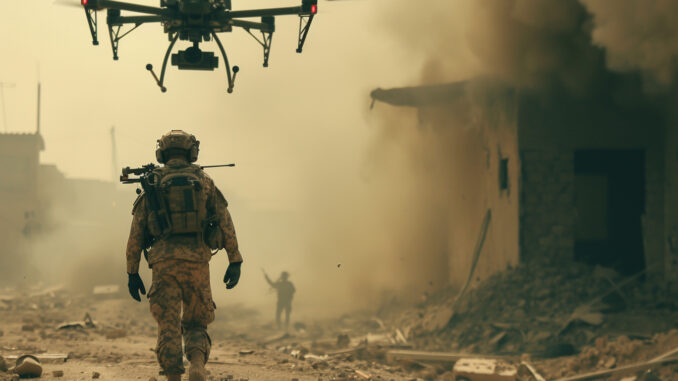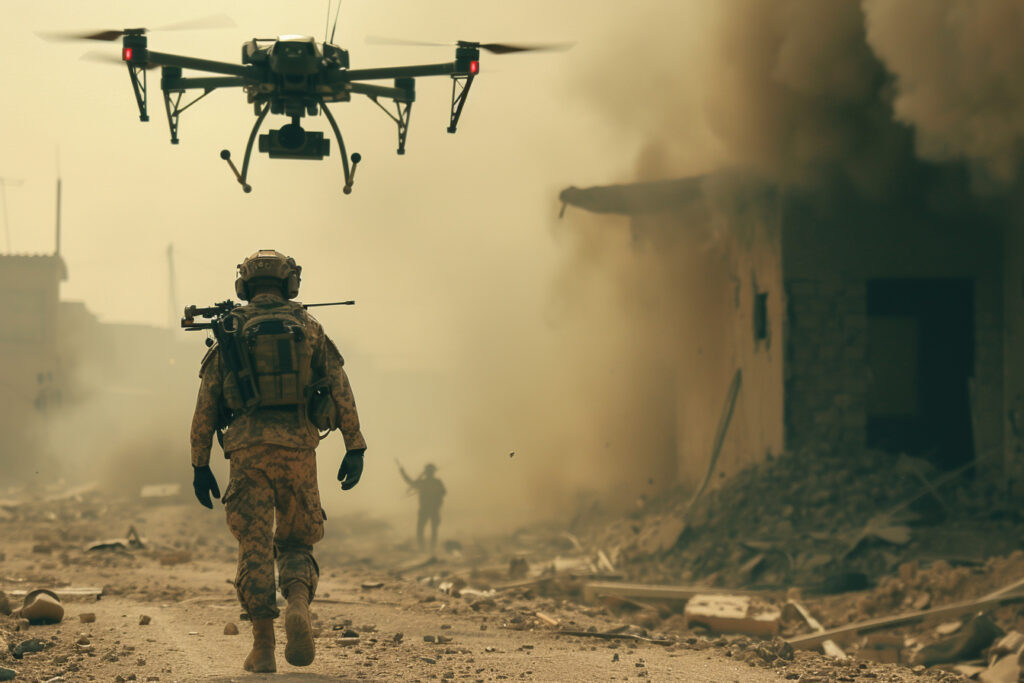
The use of an AI targeting system in Israel raises moral questions about military technologies. Analysis of the impacts and issues.
The use of artificial intelligence (AI) in armed conflicts, as demonstrated by Israel’s Lavender targeting system in Gaza, raises serious moral and ethical questions. This system enabled thousands of people to be identified and targeted with a significant margin of error, resulting in considerable civilian casualties. Supporters of military AI justify its use on the grounds of strategic advantages, while opponents warn of the risks of automated lethal decisions. The controversy surrounding Lavender illustrates the crucial need to balance technological innovation with respect for international law.
The growing use of artificial intelligence (AI) in military operations is generating heated debate. Israel, one of the most technologically advanced nations, uses an AI-activated targeting system called Lavender. This system was used extensively during the bombing of Gaza, generating massive targets and triggering a worldwide controversy about the moral dangers of such technologies.
AI and the Lavender targeting system
The Lavender system identified 37,000 Gazans as potential Hamas militants, with a margin of error of 10%. This error led to the deaths of many civilians, often in their homes, resulting in significant collateral casualties. Israeli sources reported that the process of human validation of these targets sometimes lasted less than 20 seconds, illustrating minimal supervision.
The Israel Defence Forces (IDF) response emphasised their commitment to international law and human verification of targets. However, the figures remain overwhelming: 14,800 dead, including 6,000 children and 4,000 women, before the temporary ceasefire on 24 November.
Advantages and disadvantages of military AI
Advantages
Supporters of military AI point to several advantages. Firstly, AI can process massive amounts of data quickly, improving the efficiency of military operations. For example, Israel’s Iron Dome system, an automated air defence system, has intercepted thousands of rockets, saving countless lives.
Secondly, robots can perform dangerous tasks, reducing the risk to human soldiers. Professor Tom Simpson, a former Royal Marine, argues that investment in such technology is justified to protect human lives.
Disadvantages
However, the drawbacks are significant. One of the main concerns is the potential for fatal errors. Lavender’s 10% error rate shows that innocent lives can be taken by algorithmic decisions. Moreover, the speed of decisions leaves little room for human reflection, risking violations of the principles of proportionality and distinction in armed conflict.

Consequences of using AI in warfare
The impact on public perception and the legitimacy of military forces using AI is significant. Civilian casualties in Gaza have fuelled international criticism and calls for accountability. Nations need to consider not only the tactical advantages of AI, but also the moral and legal implications.
Fatal mistakes can also undermine the morale of soldiers and public confidence. According to law professor Mary Ellen O’Connell, the legitimacy of democracies rests on respect for international law, which is crucial to maintaining a fair and moral perception of military interventions.
The need for strict regulation and control
The Lavender experience highlights the need for strict regulation of lethal autonomous weapons (LAWS). Systems like Lavender show a tendency to overestimate the reliability of machines, which can lead to hasty and erroneous decisions.
International bodies and governments must work together to establish legislative frameworks that limit the use of LAWS and ensure robust human oversight. Debates about outright bans or stringent regulations are essential to balance innovation and ethics.
The use of AI in military conflicts, as illustrated by the Lavender system, raises major ethical and moral challenges. The technological advantages must be carefully weighed against the risks of civilian casualties and human rights violations. Strict regulation and human supervision are crucial to ensure that technological innovation serves the principles of justice and morality in warfare.
War Wings Daily is an independant magazine.